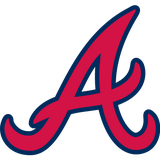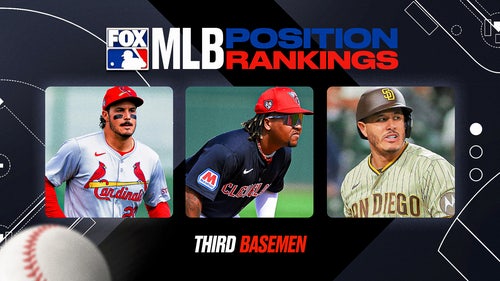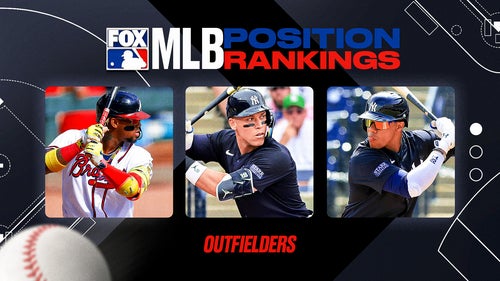
One & Done: The Chicago Cub who batted 1.000, Roe Skidmore

In the world of sports, athletes often dedicate their entire lives to reaching the pinnacle of their profession, but for many, life at the top can be short-lived. Sometimes all a player gets to experience at the highest level is one minute on the court, one trip to the plate, one shot on goal or one checkered flag, but more often than not, that fleeting moment in the spotlight is a story all its own. This is One & Done, a FOX Sports series profiling athletes, their paths to success and the stories behind some of sports' most ephemeral brushes with glory.
Growing up in Decatur, Ill., there are two options when it comes to baseball fanhood: Root for the Chicago Cubs, about 180 miles to the northeast, or root for the St. Louis Cardinals, about 120 miles to the southwest, and one never roots for both.
That's way it goes in baseball-crazy central Illinois, and in the home of former Cubs first baseman Roe Skidmore, Chicago was always the team of choice.
"My dad sold shoes for a living, and we never had much money," Skidmore said in a recent interview with FOX Sports. "So I only had two or three pairs of pants and a couple shirts, but I always had a bunch of shoes.
"Anyway, my dad used to come home from work, and after he ate supper, the first thing he'd do is go sit in his chair, and he had two radios. He'd turn them on and root for the Cubs on one and root against the Cardinals on the other, and that's how I grew up."
So it was fitting, if nothing else, that Skidmore's first and only major league at-bat came against those rival Cardinals, in September 1970, and more appropriate that Skidmore, one of seven non-pitchers with a career batting average of 1.000 since the expansion era began in 1961, got a hit -- even if he had to do it with someone else's bat.
"I was 24 at the time, and you kind of take things for granted, looking back," Skidmore said. "I thought, 'This is the beginning,' when I got that first hit, but little did I know it was the beginning of the end."
Skidmore's long journey to a short stay in the majors began in 1966, when he was drafted by the Atlanta Braves in the 47th round. A year later, he was playing in the Giants' minor league system, where he spent the better part of two seasons with San Francisco's Single-A affiliate in his hometown of Decatur.
In December 1968, the Cubs acquired Skidmore from the Giants in the minor league draft, and after a successful first season at Triple-A -- he hit .261 with 16 home runs and 84 RBI in 140 games in Tacoma -- Skidmore found himself among Chicago's September call-ups in the fall of 1969.
"I sat there for four weeks and never did get into a ballgame," Skidmore said of the 1969 season. "Everybody who talks to me says, 'Oh, 1970, first time in the big leagues,' but actually it wasn't. Leo Durocher was the manager, and he had a reputation for not being real thrilled with the young guys, so you pretty much had to prove yourself to him."
Despite not playing during the final month of the major league season, Skidmore again was impressive during the winter instructional league, hitting .305 with 11 homers in 41 games. That earned him an invite to spring training, where Skidmore was thought to be the heir apparent to Ernie Banks, who was nearing the end of his Hall of Fame career. Except, in the end, Durocher once again put Skidmore's big-league debut on hold.
"It came down to the very last day of spring training, and there was one extra guy that would break camp with the Cubs," Skidmore said. "The last two guys were me and Al Spangler -- I'll always remember that name -- and Leo decided (to keep Spangler) because he'd had big-league experience.
"So Leo called me in and said, 'We're going to send you down to Tacoma to start the season so we can have a left-handed hitter off the bench, but you'll be back up here in a month or so.' But actually, next month turned into September."
Skidmore split his time between Triple-A Tacoma and Double-A San Antonio during the 1970 season, and, as he had the season before, he received a late-season call-up to the Cubs. Except this time, he actually got in a game.
"The infamous day of September 17, it was in Wrigley against the Cardinals, and the Cubs were quite a ways behind, 8-1 or something like that," Skidmore said. "At any rate, old Leo looks down at me and calls my name. I thought, 'Oh my gosh, I thought I was going to sit here for another month,' and the knees start rattling.
"I went to the bat rack, and I remember that I couldn't find my bat. But I couldn't just stand there, and I needed to get out on deck. So we had a catcher named J.C. Martin … I grabbed his bat, and went to the on-deck circle."
When Skidmore stepped to the plate in the seventh inning for his first career at-bat, there were two outs and no runners on, and as luck would have it, he was facing a familiar foe. Cardinals starting pitcher Jerry Reuss would go on to win 220 games over 22 big league seasons, but at the time, he was a 21-year-old making his 19th major league start, and, more important, he was a pitcher Skidmore had faced in the minors.
"I had faced him several times, so it wasn't as though I had to hit against Bob Gibson or any of those type of guys," Skidmore said. "But I remember the first pitch was a fastball right down the middle, and I swung about an hour late and fouled it down the right-field line."
Eventually, however, Reuss hung a curveball and Skidmore smoked it into left field for a single, over the head of Joe Torre and, after a couple of bounces, into the glove of Lou Brock. And at Raupp's Shoes, nearly 200 miles away, Skidmore's die-hard Cubs fan father was able to listen on his trusty radio.
"He did not get to come to Chicago, but in the shoe store, he had the Cubs on every day," Skidmore said of his father, Roe C. Skidmore (Skidmore's full name is Robert Roe Skidmore). "And the day I got my hit, he happened to not be waiting on a customer. He was in the back listening to the game, waiting for the next person to come in the store, and he just happened to be back there when they announced my name to hit. So he got to hear me get the pinch hit that day.
"It's a great memory," Skidmore added. "He'll be 99 on July 31, and he lives with my wife and I, and he sits in front of his TV and watches the Cubs. He's on top of it, as sharp as can be. He knows all the players and what they're hitting. He's a big fan."
Unfortunately, that was the only major league at-bat Skidmore would have.
Skidmore's plate appearance came in place of Cubs reliever Joe Decker, and in the top of the eighth inning, another reliever, Jim Dunegan replaced Decker on the mound, bumping Skidmore from the lineup. Over the final 14 games of the 1970 season -- a span that even included two double-headers -- Durocher never called on Skidmore again, and that November Skidmore was traded across town to the White Sox.
After playing at Triple-A Tuscon in 1971, Skidmore was impressive enough to earn a chance to supplant Carlos May as the White Sox starting first baseman in 1972, but in December 1971, Chicago traded for Dick Allen, effectively ending any chance Skidmore had of earning the job. In April 1972, Skidmore was traded to Cincinnati, where he found himself stuck behind Tony Perez at first base, and in 1973, he was traded to St. Louis, where Torre and Tim McCarver had a tight grip on the position at the time.
The 1974 season saw another trade, this time to Houston, where Skidmore had little chance of beating out Lee May and Bob Watson for playing time at first base, and after a trade to Boston before the 1975 season, Skidmore, then 29, had little hope at making the big-league club thanks to Carl Yastrzemski's stranglehold on the position.
So after the 1975 season, Skidmore retired with 1,171 professional games to his name -- 846 at Triple-A and exactly one in the majors.
"You kind of get the reputation of, 'Oh, you hit 1.000 in the big leagues, that's a really big deal, you should be happy,' but inside me, looking back, it was very frustrating to me because I kept having good years at the Triple-A level," Skidmore said. "In today's game there are a lot more jobs, and I know I would have been in the big leagues had I played now, but back then, there weren't as many teams or as many jobs available.
"When I quit, I was very frustrated," Skidmore continued. "I was nearly 30 years old, and I figured my chance to get to the big leagues was gone. I was around long enough and had a lot of contacts and, looking back, I sometimes wished I had stayed in the game and been a coach or managed or whatever. You never know what could have happened there. But I elected to (enter the business world) and watch my kids grow up, so it's not all bad."
Now, with 40 years of hindsight to reflect on, Skidmore says he wouldn't change a thing.
"It means a lot," Skidmore said of his lone major league at-bat. "At the time, I probably wouldn't have said that, but as the years go on, it becomes a bigger and bigger deal. I just always felt really blessed to have gotten to do that. I don't feel any sour grapes, and I'm not still complaining that I should have gotten another chance. That's how I felt at the time, when I was going to the park every day, but it's really been a blessing."
You can follow Sam Gardner on Twitter or email him at samgardnerfox@gmail.com.






